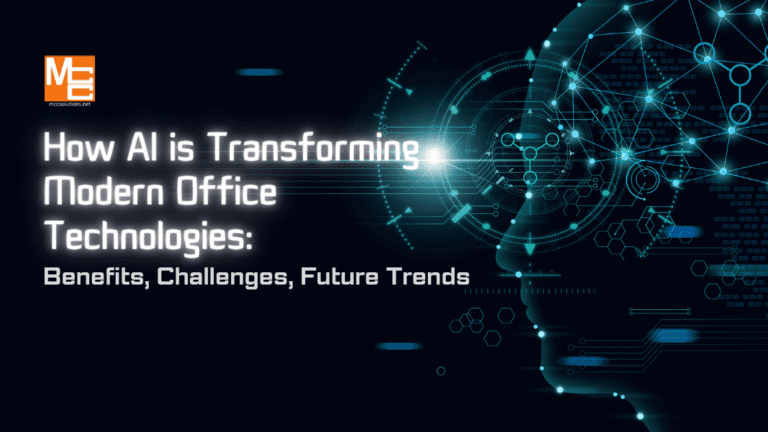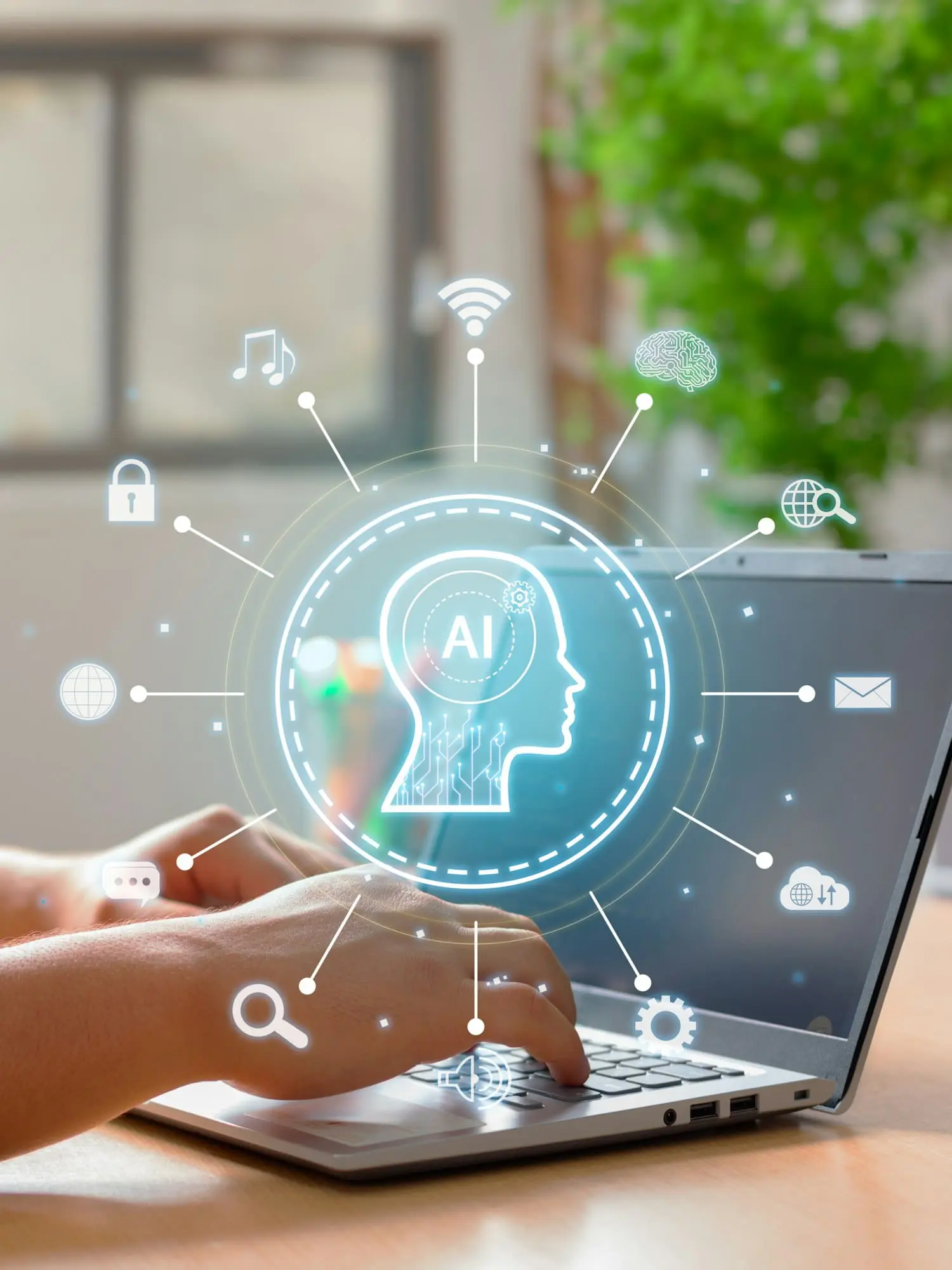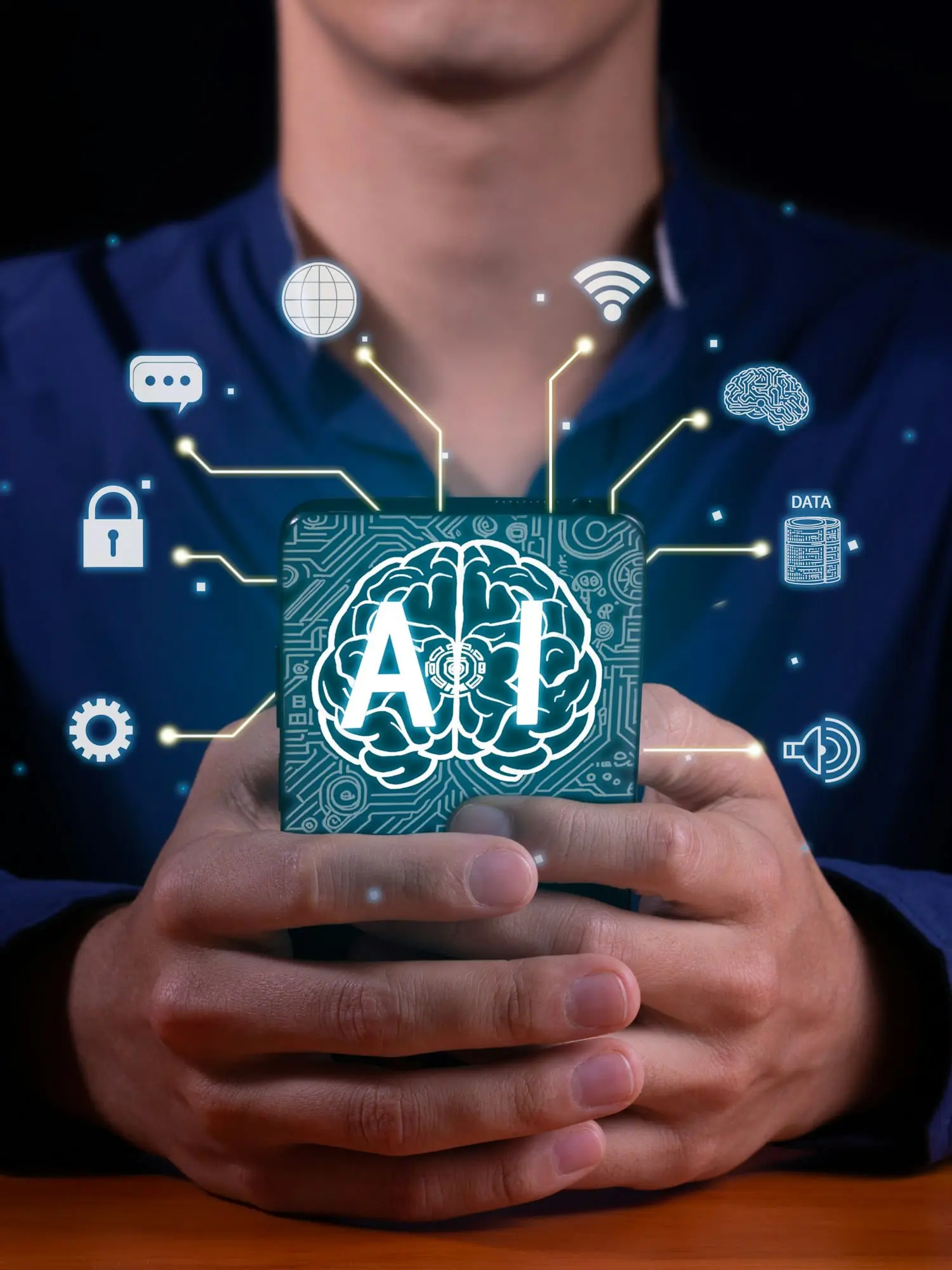Our Blog

How AI is Transforming Modern Office Technologies:
Benefits, Challenges, and Future Trends
Although AI has recently experienced an explosion in popularity, it has been around in some form since the 1940s. From Claude Shannon’s “n-gram” studies in 1948 and the first ever chatbot, ELIZA, in 1966 to Deep Blue‘s defeat of world-reigning chess champion Kasparov in 1997 and Apple‘s release of Siri in 2001, AI has been around for nearly a century. It is only recently that technology has allowed for the explosive advancements in AI.
Today, Artificial Intelligence (AI) has become a cornerstone of innovation in the modern business landscape. AI comes in many forms, such as Deep Learning, Generative AI, Machine Learning, and Natural Language Processing (NLP), and each form does something vastly different. To learn more about AI and its impact, read Quantexa’s guide The Role of AI in Decision Making.
At its core, AI encompasses technologies that enable machines to mimic human intelligence, learning from data and improving over time. This capability allows AI to automate tasks, provide insights, and enhance decision-making processes in various business functions.
In recent years, AI has increasingly integrated into office technologies, transforming traditional systems into more efficient, adaptable, and productive solutions. From video conferencing tools like Webex to sophisticated document management systems, AI is reshaping how businesses operate. In fact, according to a 2024 survey by CompTia, 56% of businesses are using AI to improve and perfect their business operations, with 22% aggressively pursuing integration of AI throughout their business.
The Importance of Office Technologies and AI’s Role
Office technologies are essential for maintaining productivity, ensuring smooth communication, and managing critical business processes. The integration of AI into these technologies has amplified their capabilities, making them smarter and more responsive to users’ needs. Artificial Intelligence plays a critical role in enhancing office technologies by:
1. Automating Routine Tasks: AI-powered tools can handle repetitive administrative tasks, freeing up employees to focus on strategic activities.
2. Enhancing Communication: AI improves the quality and efficiency of communication tools, enabling seamless interactions even in virtual environments.
3. Improving Security: AI-driven security systems proactively detect and mitigate threats, ensuring a safer workplace.


The Impact of AI on Office Technologies
Video Conferencing
Take Cisco’s Webex Assistant, for example. AI integration enhances video quality, provides real-time transcription, and offers voice-activated commands. These features make virtual meetings more productive and accessible, reducing the barriers posed by remote work.
Document Management
Document management software leverages AI to streamline and enhance various aspects of handling digital documents. By automating content classification, Artificial Intelligence can quickly and accurately categorize documents based on their content, making it easier to organize and retrieve information.
Enhanced search functionality is another significant benefit, as AI-driven systems can understand and predict user queries, delivering more relevant and precise search results. Additionally, AI automates workflows by identifying patterns and optimizing processes such as data entry, document routing, and approvals, significantly reducing manual effort and increasing overall efficiency.
Mailing and Shipping Systems
Mailing systems and shipping software utilize AI to significantly improve operational efficiency and accuracy. AI-driven address verification ensures that all addresses are correct and formatted properly before shipments are processed, minimizing delivery errors and delays. Enhanced tracking capabilities are achieved through Artificial Intelligence, providing real-time updates and predictive analytics for more accurate delivery time estimates and route optimization. Furthermore, AI automates workflows by streamlining tasks such as sorting, labeling, and dispatching packages, thereby reducing manual labor and accelerating the overall shipping process.
Security Systems
Security systems and access control solutions harness Artificial Intelligence to provide advanced features that significantly bolster safety and security. AI-powered video analytics enable real-time monitoring and analysis of surveillance footage, automatically detecting and alerting for suspicious activities. Person and object tracking capabilities allow the system to follow individuals or items across multiple cameras, providing comprehensive situational awareness. Anomaly detection utilizes machine learning algorithms to identify unusual patterns or behaviors that may indicate potential threats.
Additionally, gun detection technologies can recognize and alert authorities to the presence of firearms, enhancing response times in critical situations. Predictive threat analysis leverages AI to assess risks by analyzing historical data and current trends, enabling proactive measures to prevent security incidents before they occur.
Benefits of Artificial Intelligence in Office Technologies
The integration of AI in office technologies brings numerous benefits to businesses:
1. Increased Efficiency: Automation of routine tasks leads to significant time savings and improved operational efficiency.
2. Enhanced Productivity: AI-driven data analytics can improve decision-making, allowing employees to focus on high-impact activities.
3. Improved Collaboration: Advanced communication tools foster seamless collaboration for both hybrid work and fully remote teams.
4. Heightened Security: Proactive threat detection and response mechanisms protect sensitive data and maintain the integrity of business operations.
Potential Risks and Challenges
Despite its advantages, adopting AI in office technologies comes with its own set of challenges:
1. Data Privacy Concerns: AI systems often require access to vast amounts of data, raising concerns about data privacy and potential misuse.
2. Security Risks: While AI enhances security, it also introduces new vulnerabilities that need to be addressed through rigorous cybersecurity measures.
3. Job Displacement: Automation may lead to job displacement for roles involving repetitive tasks, necessitating workforce reskilling.
Creating New Jobs and Opportunities
AI in office technologies can create new jobs and opportunities that require advanced skill sets. Roles in AI development, data analysis, and cybersecurity are becoming increasingly important. Workers can adapt to these changes by:
1. Upskilling and Reskilling: Engaging in continuous learning to acquire new skills relevant to AI-driven technologies.
2. Leveraging AI Tools: Understanding and utilizing AI tools to enhance personal productivity and job performance.
3. Embracing Change: Being open to innovative practices and workflows introduced by AI advancements.
The Future of AI in Office Technologies
Looking ahead, the potential of AI in office technologies is immense. We can expect further advancements in:
1. Predictive Analytics: AI will provide even more accurate predictions, aiding strategic planning and decision-making.
2. Personalized Experiences: Customized user experiences based on AI-driven insights will become commonplace.
3. Integration with Emerging Technologies: AI will increasingly integrate with technologies like IoT and blockchain, creating more robust and secure office ecosystems.

In conclusion, AI is revolutionizing modern office technologies by enhancing efficiency, productivity, and security. While challenges exist, the benefits far outweigh the risks, paving the way for a future where AI-driven innovations continue to transform the workplace.
By staying informed and adaptable, businesses and workers alike can harness the power of AI to achieve sustained success and growth.
Want to see how MCC is using AI?
Most of the office technology solutions MCC offers already use AI in some form. Learn more about how AI is improving office technology by speaking with an expert today.
Looking for something specific?
Want the latest news in your inbox?
Don't forget to share!
Categories
Industries
Solutions
MCC News




2 Responses